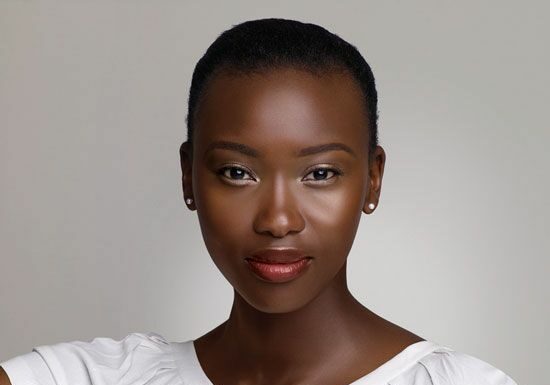Abuse of women and children happens in all areas of life. The entertainment industry is no different as women continue to get paid less than their male counterparts and often have to suffer sexual harassment.
Model Lerato Moloi released a harrowing statement this week, detailing her alleged rape by a top comedian and having to spend a night in jail because she refused to apologise to him. Her bravery inspired journalist and author Vanessa Govender to name her abuser for the first time on Wednesday since the book, Beaten But Not Broken, was published in 2018.
They were speaking in a virtual gathering, GBV and the law, hosted by Jacana Media and the Tears Foundation. They were joined by legal expert Zanele Mbuyiso and Dr Sithembile Mbete, senior political science lecturer at the University of Pretoria.
Govender broke down in tears as she named radio jock, Fahim Jamadar, who she dated for a few years, as her perpetrator. “It was a deliberate decision not to name him in the book. I don’t give him the luxury or benefit of keeping him anonymous anymore. I’ve been afraid of saying that name. It’s not my fear, not my shame. I’m done with that.
“I owe myself. I’ve been trapped by not saying this God-forsaken name. It’s not my job to protect you anymore,” she said as she broke down. Govender pointed out that despite these allegations, Jamadar was recently appointed at another radio station. Jamadar was also accused of assaulting, harassing and distributing four sexual videos of a former Lotus FM and Megazone DJ, Mishka Gounden.
The 26-year-old, who also features on Imbewu: The Seed, later dropped the charges against Jamadar. Lebogang Ramafoko, CEO of Tekano and an activist, says naming your perpetrator publicly brings its own justice. Ramafoko says: “When you can name an injustice that has happened to you, you are then able to heal. The justice that women get from speaking out is that they finally break the silence for their own healing.
“They place the burden on the shoulders of the perpetrator. They are not going around with this guilt that something happened and they have kept quiet. There is just so much power in speaking out against injustice, especially for the one who experienced the injustice.”
Moloi pointed out that the death of Tshegofatso Pule a month ago triggered her own rape ordeals. She told Sunday World that in 2016, she had a home invasion and was violated next to her child. Her perpetrators never paid for the crime.
She named Mongezi “Tall Ass Mo” Mahlangu in 2016 of sexually harassing her. She refused to take down her tweets and had to spend a night at a Vereeniging police cell. She has now opened a rape case against him.
“I met a woman there [in prison] that night who was arrested because she decided to stand up to her partner who was beating her for years. We laughed at the ridiculous justice system because the real abusers were still out there,” explains Moloi. She also spoke of her struggles in opening a rape case, stating that the police initially told her to go to Paarl because that’s where the alleged incident occurred.
Moloi’s bravery also saw SABC2 Lithapo’s Lorraine Moropa speak out against Mangaliso Ngema sexually harassing her, as well as Altovise Lawrence who said the actor offered to furnish her flat in exchange for sex. Mbuyiso, who says it’s often found that an abuser would have targeted more than one victim, advises women to come forward, saying doing so also encourages others to follow suit, like in the cases of film producer Harvey Weinstein and comedian Bill Cosby.
Ramafoko says sexual harassment is rife in the entertainment industry because, like many other forms of employment, the industry is not regulated. Says Ramafoko: “It thrives on powerful men giving you a break or deciding who gets opportunities or who doesn’t. It’s easy for the industry to turn a blind eye to reports of violence. “It’s very easy to dispense of talent, to dispense of women who are seen as troublemakers, who upset the apple cart. Our society is very patriarchal, and as such, we invest a lot in deciding who are proper women and who are not proper. The minute a woman wants to speak up, we discard and isolate her.”
She explains further: “It happens in all industries, but then it is somewhat pronounced in this industry. Measures and regulations need to be put in place to stop the abuse of women. “Women must call out the powerful in society. These are men in boards, executive level and in senior management in big organisations like the SABC, M-Net. “We should deal with sexual off ences in the same manner that we deal with fraud and unethical behaviour. Board members should be jailed if they don’t take issues of sexual harassment seriously.”



